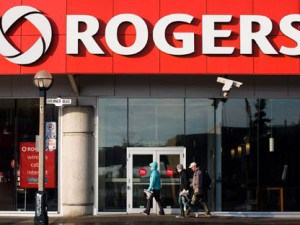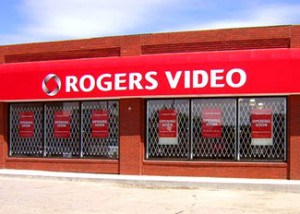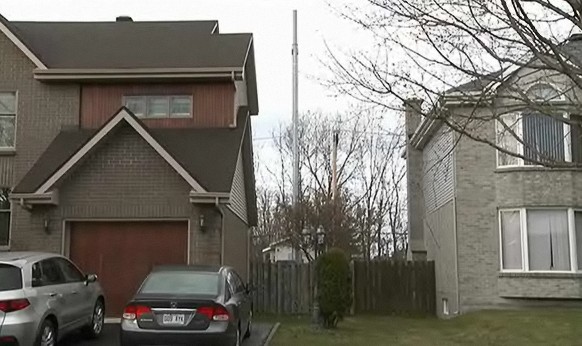 Canadian cable, phone, and satellite providers have done a better job stymieing would-be “cord-cutters” than their counterparts further south in the United States.
Canadian cable, phone, and satellite providers have done a better job stymieing would-be “cord-cutters” than their counterparts further south in the United States.
The Canadian Radio-television and Telecommunications Commission’s (CRTC) annual report on the country’s telecom companies shows all of them remain exceptionally profitable, keeping pay TV customers far more effectively than American providers. Total revenues climbed from $12.5 billion to $13.5 billion in just one year, as price hikes, Internet Overcharging schemes like usage-based billing, and lack of competition continue to takes its toll on Canadian wallets.
The biggest winners were the biggest telecom companies in Canada — Rogers Communications, Bell Canada (BCE), and Shaw Communications, which all saw profits soar 8.2% to $11 billion. Costs increased about 10.7% in 2011, fueled by network upgrades and rampant hikes in programming costs — an interesting state of affairs considering Rogers and Bell own or control a substantial number of the programmers demanding higher payments. Most of those increases were passed on to customers in the form of rate hikes.
Although Canadians are increasingly interested in streaming online video, virtually every major Internet Service Provider in the country has effectively prevented customers from dropping cable television service in favor of broadband-only access. They manage it with usage caps and usage billing on their broadband products. With streamed video accounting for a substantial drain on customers’ monthly usage allowances, Canadians are unlikely to cancel cable TV in favor of watching all of their favorite shows online.
In fact, the number of Canadian households that subscribed to a cable company’s basic television service actually increased by 2.8% in 2011 to reach 8.5 million. Experts say the country’s transition to digital over the air television may account for some of that increase, but a few high broadband bills with overlimit fees for “excessive Internet use” can effectively drive online video fans back to traditional cable TV as well.
 Satellite television in Canada remained flat, with a virtually unchanged 2.9 million Canadians relying on Bell and Shaw satellite service for television entertainment.
Satellite television in Canada remained flat, with a virtually unchanged 2.9 million Canadians relying on Bell and Shaw satellite service for television entertainment.
But everyone is paying more to watch.
In 2011, cable companies paid $2.1 billion in wholesale fees to the pay and specialty services they distribute, an increase of 10.2% over the $1.9 billion paid the previous year. The fees paid by satellite companies rose by 2.8% in one year, going from $894.4 million to $919 million.
That leaves vertically and horizontally-integrated conglomerates like Bell in the perfect position to extract higher programming payments. Those costs are passed down to Canadian consumers and blamed on “greedy programmers,” despite the fact those programmers are owned in part or outright by Bell.

A Rogers retail rental store
Rogers is also well-suited to remain a part of the Canadian entertainment experience. The company owns cable systems, wireless phone networks, programmers, and even home video stores. However Stop the Cap! reader Alex notes Rogers has been closing a number of those video stores over the past few months.
“This gives customers one less choice for renting movies, basically forcing them to use Rogers On Demand instead,” writes Alex.
Rogers On Demand comes with a higher price, too. In-store rentals from Rogers are priced at 2 for $9 or 3 for $15. A recent look at Rogers’ video on demand website, Rogers Anyplace TV, shows most movie titles priced at $4.99 each. With Rogers closing 40 percent of their retail rental outlets, movie fans have had fewer competitive choices for movie rentals.
One potential new contender coming to Canada – kiosk video rentals. Although services like Redbox are now commonplace in the States, they are virtually unknown in the north. Jim Gormley, former owner of Jumbo Video is back with Planet DVD. With just 2% of Canadians renting movies from kiosks, Gormley believes there is plenty of room to grow, especially as Rogers scales back its video rental business.
Planet DVD has a pilot project running with supermarket chain Sobeys to place kiosks in front of nine store locations. The first kiosk was erected in early March in front of a Sobeys store in Mississauga, Ont.
A new release at a Planet DVD kiosk is priced at $3 for a one-day rental. That’s less than what most video stores charge, but more than double what Americans pay at a Redbox kiosk.
 Rogers Communications has following up its “Next is Now” corporate video from 2010 with a sequel: “Next is Now… More Than Ever,” which highlights how Canadians are increasingly relying on mobile communications for news, entertainment, social life, work, and education.
Rogers Communications has following up its “Next is Now” corporate video from 2010 with a sequel: “Next is Now… More Than Ever,” which highlights how Canadians are increasingly relying on mobile communications for news, entertainment, social life, work, and education.

 Subscribe
Subscribe





